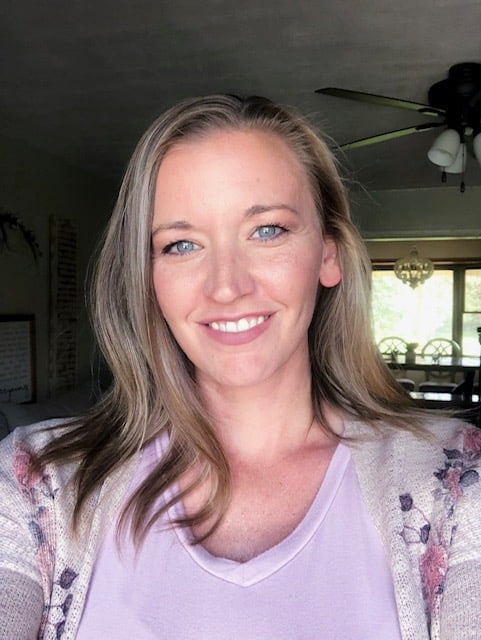This post may contain affiliate links. Click here to read my full disclosure.
You may have come across personal finance coaching websites when searching Google for ways to get out of debt, save more money, or just stop living paycheck to paycheck. Money management can be a very stressful topic of discussion in many households, and many people have no idea where to turn for help when they have no idea how to fix the mess they’ve gotten themselves into. This is where personal finance coaching can help you. Some people do a perfectly fine job managing their personal finances without help. Others struggle with feeling embarrassed that they don’t know how they racked up so much debt or got behind on their utilities. Perhaps they’re a free-spirited nerd like me, and they know what they need to do with regards to budgeting and saving, but their free-spirited side tends to sabotage their goals. The struggle is real!
What Does a Personal Finance Coach Do?
Personal finance coaching comes in two different forms:
- One on One Coaching is where you work with someone directly regarding your personal finances. Individual coaching sessions give you personalized service based on your individual needs. Your coach will likely sit down with you (either in person, via email, or Skype). They’ll ask you several questions to uncover your spending and saving habits and will set attainable goals and stretch goals, and they’ll lay out a plan of action to get you where you want to be. At the bottom of this post, you can get a FREE SMART Goals Worksheet so you can get started right away setting and tracking your own goals. It’s up to YOU to put in the work, but they’re there for support and to get you started on the path to financial freedom! Many people like this type of personal finance coaching because they’re able to have extra accountability, making them more likely to succeed.
- Some Personal Finance Coaches offer e-courses or workshops that can help you accomplish the same as in step 1, but there are no one-on-one sessions. You’ll work at your own pace to complete the assignments, and by the end of the course or workshop, you should have a better understanding of money, finances, and how to make every dollar count! Some people prefer this type of personal finance coaching because they may have a hectic schedule and prefer to just work at their own pace. They may not need the extra accountability that one-on-one coaching offers.
Who Needs Personal Finance Coaching?
- Those who are in “survival mode”, struggling and living paycheck to paycheck are the obvious choice when it comes to who needs personal finance coaching. If you haven’t opened a bill in months or cringe when you walk to the mailbox, you likely could benefit greatly from hiring a coach.
- Single Moms (especially those going through a divorce or recently divorced) need to hire a personal finance coach. Years ago, when I went through my divorce, I had no money. I had a 2-year-old who needed me to step up. And I was in the process of finding my own identity (separate from my ex-husband). I lost all self-control and began to “wild out”. Don’t be the girl who has to call Grandma to bail you out because you’re about to be evicted. (slowwwly raises hand)
- High-Income Earners who tend to blow their money on frivolous purchases (could be as simple as eating out every single meal) would benefit from personal finance coaching. Here are a couple of examples of this:
- Case Study #1-I know someone who earned $60,000 per year as a single bachelor, but he blew at least $500-600 per week on cigarettes, beer, and eating out. He had NO idea he was spending 10% of his income on these things, and if he’d have invested just half of that into a ROTH IRA, he would have over $36,000 added to his retirement over the course of ten years! And that’s without calculating any compounded interest at all! That’s if he was earning a 0% APY (annual percentage yield)! If he earned 4% APY on his money (on average), he’d have approximately $43,000 saved in ten years. He’d have over $75k if he’d just quit smoking and drinking and learn how to cook! 😛 I’d say that’s worth so much more than a few packs of cigarettes and some beer and McDonald’s, wouldn’t you?
- Case Study #2-Another couple (with no kids) earned well over $300,000 per year for 15 years. They kept their finances completely separate because they married later in life after multiple divorces and decided they wanted to “protect themselves”. She saved a good portion of her income into retirement (but definitely bought nearly anything she wanted throughout the 15 years). He blew his entire income on ATV’s, boats, pickup trucks, and has nothing in retirement or savings. Together, they could have been a force to be reckoned with. His money habits have been far from stellar, and he has always said he would liquidate all of his toys when he was ready to retire. The problem with selling off all of your vehicles and toys is that they are depreciating liabilities. I don’t call them assets because if you have any outstanding debt on them, they’re a liability. So when he does decide to sell them, they’ve lost so much value. There is absolutely no substitute for cash! Money is money. Toys are not money! Imagine if the husband had saved just 10% of his income into retirement. Let’s assume that he saved $15,000 per year towards retirement and earned a rate of return of 4% APY (just the same as above). When I plug those numbers into a savings calculator, after compounding the interest, he’d have $309,888.38 at the end of 15 years. That’s a HUGE chunk of change! If he amped it up and decided to save $20,000 per year, in the same scenario, he’d have nearly $415k!
- Case Study #3-I believe that all high school students should take a money management course prior to graduating. By understanding the value of money, setting a few core values, and sticking with their own personal goals with regards to finances, they will be set up for success if and when they decide to go to college, votech, or start their own business. I’m working on creating an e-course specifically for high school students to do just that! If you want to be one of the first to know about it, enter your email below and I’ll get you on the waitlist!
These examples are at far ends of the spectrum. To some people, $60,000 per year just isn’t a lot of money. For a bachelor whose rent is $400 per month and has minimal expenses, $60k/year is an excellent living. To some people living in more expensive parts of the country, $300k per year just isn’t enough. I once heard a real estate agent say that if she couldn’t gross at least $200k per year gross commission income, it wouldn’t be worth it for her husband to quit his full-time job and be a stay at home Dad/assistant to her. I thought this was ludacris and that they should probably pay off some debt and/or move to a more affordable area. But I digress.
Key Takeaway
Personal finance coaching can be extremely beneficial to many people in all stages of life. From young students to recent graduates to single Moms and Dads and married couples (even those reaching retirement), everyone can benefit from a little help. It’s up to you to decide whether or not you prefer one-on-one coaching or would rather learn at your own pace with an e-course. If you’re interested in learning more about my personal finance coaching, click here.

Life is a collection of memories and experiences. There are ups and downs. I am so grateful for God’s grace and am on the journey to a renewed spirit, free of perfectionism. Perfection Hangover offers the sober truth – no filter.




Pingback: Top Personal Finance Blogs {Who to Follow this Year}
OMG the struggle really IS so real! My nerdy budget wins most of the time, but my gypsy soul has gotten me into a ton of trouble too!
Yes! Another free-spirited nerd! Be sure to subscribe so you don’t miss out on guidance specifically for YOU <3
This is amazing! I didn’t even know it existed!
Yes ma’am! 🙂
Personal finance coaching could be really helpful. I’ll have to look up some programs to help me out soon.
Absolutely! Thanks for your comment!
This is great! I think many could benefit from finance coaching!
Thanks, Emily!
I think it is so important to know about your finances and understand the worth for your dime. Great that you are creating this course. It is going to help many.
Thank you! I think so, too 😛
It’s really awesome that you can coach people in this, I guess a lot of people could really need the help 🙂
I know there was a point in my life that I desperately could have used help in finances. <3
I would’ve loved to have a money management class in high school. That would’ve been so helpful. Being dumped out into adulthood with no idea is overwhelming.
I can’t wait to get this e-course created so we can start kids off on the right foot! Thanks for stopping by, Nikki!
We recently hired a finance consultant and it was very eye-opening and helpful too. He helped us figure out a practical budget so we can save more and also invest more in our retirement account. Making little changes in our spending will help us save so much more over the course of 10–15 years.
So smart, Joscelyn! You will never regret investing in yourselves and your future!
all sound advice, just can be hard to make that first step!
I know, Janna! It can be intimidating for some. I hope folks will reach out to me if they ever feel stuck. 🙂
I think it’s great that you are creating a course for financial coaching and awareness. Our culture is so focused on keeping up with the Jones’ that we are in debt trying to impress people we don’t even like. I never grew up with proper role models for making the best financial decisions, however so glad my husband helps show me by example how to SAVE SAVE SAVE and be debt free. So grateful to have met him. You are doing a great thing educating others to become financially free.
Thank you, Kamira! I’m certainly trying to do my best! Sounds like you have a good man! Hold onto him awhile longer 😉